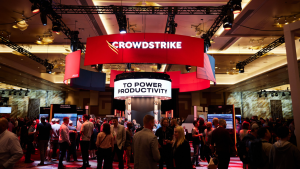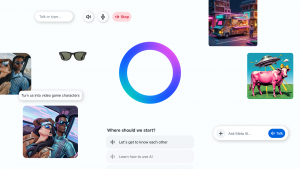Review: Google’s New $199 Killer Tablet
This is a 7-inch tablet made by Asus that is running the pure Google “Nexus” version of Android, and it will be shipping within the next couple of weeks. You can buy it directly from Google for a bargain $199 by going to play.google.com and order it already.
The first thing on the investor’s mind is of course: Is this a threat to Apple and Amazon(AMZN)? The answer is yes, but with some caveats with respect to Apple. This little tablet powerhouse offers most of the iPad’s performance at the price of the Amazon Kindle Fire, which is a powerful proposition — for those who have a chance to try it.
But for many reasons, in its current format it will not knock Apple off its market-leading position. Let’s just start with marketing. A tablet is something most people buy only after having touched it and played with it. The place to do that is the Apple store. Game over.![]()
Google doesn’t have stores, and physical retailers who may carry this tablet in the future are, in the consumer’s minds, relatively seedy places such as Fry’s and Best Buy — simply not in the same league as the Apple stores. The only competitor to those are the Microsoft stores, but there are only 20 or so of those, and obviously they won’t be carrying this Google-based product.
I will be discussing the actual product metrics below, but until Google opens 500 or so stores world-wide, in premium locations, just like Apple, it can offer a superior product all day long, at lower prices, and Apple will remain the market leader. Google has tens of billions of dollars in cash, and this is the best way invest it, capisce?
All right, so what about the actual product? The answer is that it is excellent. Class-leading. Second to none. Let’s start by outlining the positives:
- 1. Basic physics: Unlike the iPad, this tablet is very light, so you can easily hold it with one hand. It’s also got an outstanding rubberized back, making it non-slippery. While the iPad is slippery and requires a protective cover, the Asus Nexus 7 is light and grippy. The overall quality feel is essentially flawless. The price is $199, but it feels like $499.
- 2. Screen: 800×1280 in a 7-inch form factor is not as good as the new iPad 3, but it’s close enough. It is not the best display in the industry, but 99% of users will not have any complaint at all.
- 3. Ports: There is really only one thing of note here, and that is that this tablet may be the first after the BlackBerry PlayBook to charge via standard MicroUSB. I ranted about this before in this article from March 24, 2011. Anyway, this is a huge relief compared to almost every other tablet in the market. You no longer have to keep track of a separate charger for the tablet. Just use the same one that works with every smartphone in the market — except the iPhone, of course.
- 4. WiFi: Here is a bit of a sad note. The Asus Nexus 7 supports only 2.4 GHz — not the much more capable 5 GHz version of 802.11n WiFi. It is funny that Google would introduce this device, and hand out some 6,000 units to developers, at its annual i/o event in San Francisco, when their conference attendee name tag reads as follows: “To avoid excessive interference on the 2.4 GHz frequencies and ensure yourself the best connectivity experience at Google I/O, we recommend that attendees use 5 GHz capable WiFi devices wherever possible.”
Yeah, except the device you just handed out to those 6,000 people. According to Google: “Good for me, but not for thee.”
- 5. Cellular connectivity: None. This (initial) version of the Nexus tablet is WiFi-only. Expect future versions to have LTE as well as to come in larger screen sizes — 8, 9, 10 and perhaps 11 and 12 inches as well.
The lack of embedded cellular data modem is a serious drawback for those of us who primarily use our tablets when we are on the go — but almost never at home. At home, we have this wonderful thing called a laptop — and in particular the Google Chromebook made by Samsung, which boots up instantly, as opposed to Windows and Mac laptops. So no need to use a tablet in the house.
But when we’re walking down the street and making very quick stops, but we don’t want to carry a 3-pound-or-so laptop, and we don’t want to take up that much space at the cafe table, or just want more privacy in our computing experience, a tablet is ideal. However, we also don’t want to carry a separate portable WiFi hotspot or connect to public WiFi. That’s why embedded cellular data is so critical for at least some customers.
AT&T’s Glenn Lurie has pointed out that tablet consumers who have embedded cellular connectivity are much more satisfied than WiFi-only customers. I suspect that this is in turn a function of the fact that they use their devices more — like me, when you’re walking down the street.
- 6. Protective cover: Speaking of always having the tablet in your hand when you’re walking down the street, Google/Asus should have launched it with a protective cover. The best model yet is the cover for the original Apple iPad 1 in April 2010. No cover to date has been able to match this one. Just copy it, ok?
- 7. Software: The Asus Nexus 7 is the first device to ship with Google Android 4.1 Jelly Bean right out of the gate. I don’t have the space to review it here, but suffice it to say that it’s a big step forward for Android and that I find it a formidable competitor to everything that Apple, Microsoft and others have to offer. If Google can just ensure that going forward, all implementations of Android gets the latest OS innovations essentially immediately, it will improve its competitiveness against Apple and Microsoft dramatically.
End Game
What is the final verdict here? Some will argue that I am speaking with a forked tongue.
On the one hand, I’m saying that Apple does not have too much to fear from this 7-inch tablet that lacks dual cameras and cellular data modem. And that is true. Apple offers a larger product that nails the feature set on essentially all fronts. But the price is also significantly higher.
On the other hand, the Nexus 7 tablet will take some sales away from Apple on the margin. Some people simply had to buy the iPad because there was no decent competition. There is now.
For Amazon, the situation is worse: The Nexus 7 is a direct competitor, except it’s much, much better, for the same price.
Ultimately, the Nexus 7 raises two questions that only Google can answer at this point:
1. Where is Motorola? Google owns Motorola now. Motorola makes Google tablets. For pete’s sake, why did Google have to outsource this puppy to Asus? Is Google’s own hardware operation so lacking in competitiveness? As a shareholder, this is making me nervous.
2. When will Google realize that the Nexus 7 — and any other Google hardware — will only become a success once it matches Apple’s investment in retail stores? Hire somebody — anybody — and build 500 of them pronto, or resign yourself to playing second fiddle to Apple forever — despite having superior products at cheaper prices.
[Cross-posted at The Street]
A message from John Furrier, co-founder of SiliconANGLE:
Your vote of support is important to us and it helps us keep the content FREE.
One click below supports our mission to provide free, deep, and relevant content.
Join our community on YouTube
Join the community that includes more than 15,000 #CubeAlumni experts, including Amazon.com CEO Andy Jassy, Dell Technologies founder and CEO Michael Dell, Intel CEO Pat Gelsinger, and many more luminaries and experts.
THANK YOU













